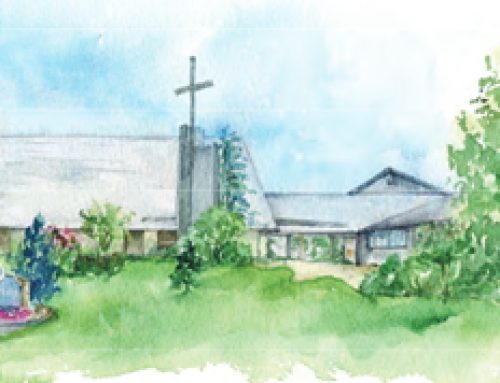FROM THE PASTOR’S DESK
Dear Parishioners,
When we hear today’s readings, we can understand the challenge of preaching the Gospel today. We live at a time when divorce is common and acceptable in most countries and cultures.
The Book of Genesis tells us of an ideal situation at the time of creation, when God is creating our human race. We should all know that there is another account of creation in which woman is created equal to man and not out of man. Nevertheless, we must be adult and mature enough to look at this account and hear what it is telling us. It speaks first to the relationship between man and woman and is speaking about their original unity. When something is taken out another thing, that taking can cause either diminishment or increased greatness. This Scriptural account speak of the creation of woman as an increased greatness for humanity, not a diminishment.
This creation account also is speaking to a spiritual ideal: that those united in marriage are really one—and it is this ideal that the Gospel picks up. We all should know how difficult it is to become one and remain true to oneself. This becoming one, again, does not imply diminishment, as though they women disappears into the man, or vice versa. Rather, something new is created, which is an increased greatness for the two who have become one.
Today in our Catholic Church we have annulments. Surely, we must at times question ourselves about this practice. What is the difference between an annulment and a divorce? In the teaching of our Catholic Church, an annulment declares that a marriage never really took place. This causes all kinds of misunderstandings, both within the Church and from outside.
One of the easy ways to understand an annulment is if we picture a pregnant young woman standing at the altar with her father there with a shotgun, ready to kill the groom unless he marries his disgraced daughter. This is a scene that does not happen, of course, but it helps us understand that such a marriage does not have a true freedom of consent from either the bride or the groom. Freedom of consent is very important in forming any true marriage.
Another requirement for Catholic marriage is that the bride and the groom, if they are still capable of producing offspring, must desire offspring and be open to having children. So, if either the bride or the groom has made clear that they never want to have children and will use any means not to have children, then from a Catholic point of view, there is not a true marriage happening.
Only with the development of psychology and psychiatry did we come to understand that there are many other factors that can stop men and women from giving a true consent to a marriage.
But we have to admit, at times, that annulments can look like a Catholic divorce. And we have to admit that sometimes annulments can be misused by people who are desperate to remarry within the Catholic Church—or by those who are desperate to get out of a marriage with the illusion that it never happened. Individual cases can only be looked at individually!
The spiritual problem that Jesus confronts is the same spiritual problem that besets marriage today: people want easily out of a marriage that is going through problems and will find ways to get out of it without looking at the spiritual implications. It used to be that men seem always to want another younger woman! Today sometimes it is the woman who wants a younger man. We have a new equality in the making!
At the base of all these problems is a real challenge: Do I have a true spiritual life? Am I marrying with the goal of spiritual life? Where does spirituality fit into my marriage? As a spouse, am I committed to developing the spiritual life with my partner?
If my Catholic faith is alive within me as a living experience of God, I will surely marry in a different way than if my Catholic faith is something that I have just inherited and has not become a living faith within me.
Then there is the whole problem today of someone who has gone through a “valid” Catholic marriage, but who did not have a real faith at that time. Later, the marriage breaks up. The person begins to grow spiritually and deeply embraces his or her Catholic faith. Then that person meets someone else who is alive in their faith, and they want to be married in the Church. The Catholic Church has not found a solution for that yet! But it is one of the great challenges of our time to develop a theology that is truly compassionate while at the same time is true to the teachings of the Church.
For any of us, the challenge of this Sunday and its readings is very simple: Is my faith alive? Do I really seek the living God? Does my life reflect a living relationship with God and a constant striving to understand His word and put it into action in my life? Let us pray for those gifts. Let us pray for all who have divorced. Let us pray for the healing of the sufferings of those who have divorced. Most of all, let us pray for God to be known as a compassionate and loving God and may we reflect that compassion and love.
Peace,
Fr. Monteleone
To read complete bulletin click here



